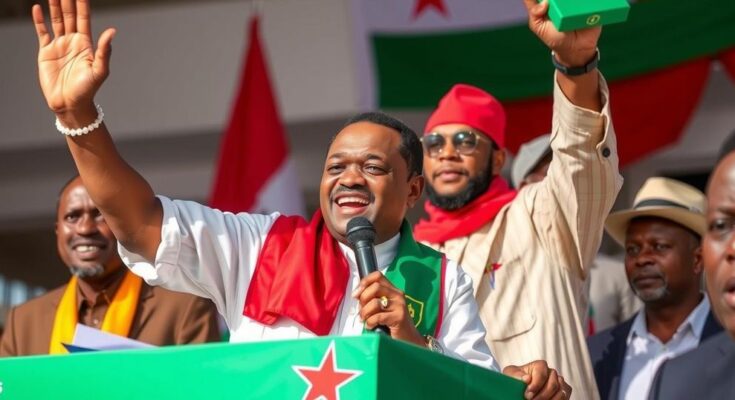Chad’s ruling Patriotic Salvation Movement party won a decisive majority in parliamentary elections that were boycotted by the main opposition, securing 124 seats out of 188. The elections, viewed by critics as lacking credibility, were the first in over a decade and occurred during a tumultuous political period following the military takeover in 2021. Voter turnout was reported at 51.5%.
In the recent parliamentary elections held in Chad, the ruling Patriotic Salvation Movement (MPS) party has emerged victorious, securing 124 out of 188 seats amidst a backdrop of boycotts by numerous opposition parties. The elections, which were the first of their kind in over a decade, also incorporated local and regional elections aimed at furthering the nation’s democratic transition, following the military takeover by Mahamat Idriss Deby in 2021 after the death of his father, long-serving President Idriss Deby Itno. Despite a voter turnout of 51.5%, the legitimacy of the election was questioned by opposition factions, who labeled it a “charade” and expressed concerns about its credibility, echoing the controversies surrounding previous elections in the country.
Chad has been navigating a complex political landscape following the military transition of power initiated by Mahamat Idriss Deby in 2021, which occurred after the death of his father, a leader who ruled for thirty years. The recent elections represent a significant event in Chad’s political journey, with the government asserting its commitment to decentralization and democracy. However, the mass boycott by the opposition raises questions regarding the inclusiveness and fairness of the electoral process, particularly in light of previous allegations of electoral irregularities.
In conclusion, the recent parliamentary elections in Chad have reinforced the ruling party’s grip on power amid a notable boycott from opposition parties, signaling potential challenges in the country’s pursuit of a truly democratic process. The electoral outcome may further influence Chad’s political stability and its ongoing battle against internal and external security threats. The lack of opposition representation could hinder the government’s declared objectives of decentralization and democratic engagement.
Original Source: abcnews.go.com




